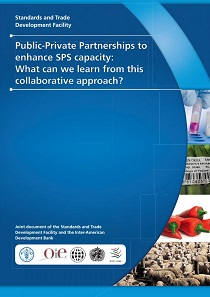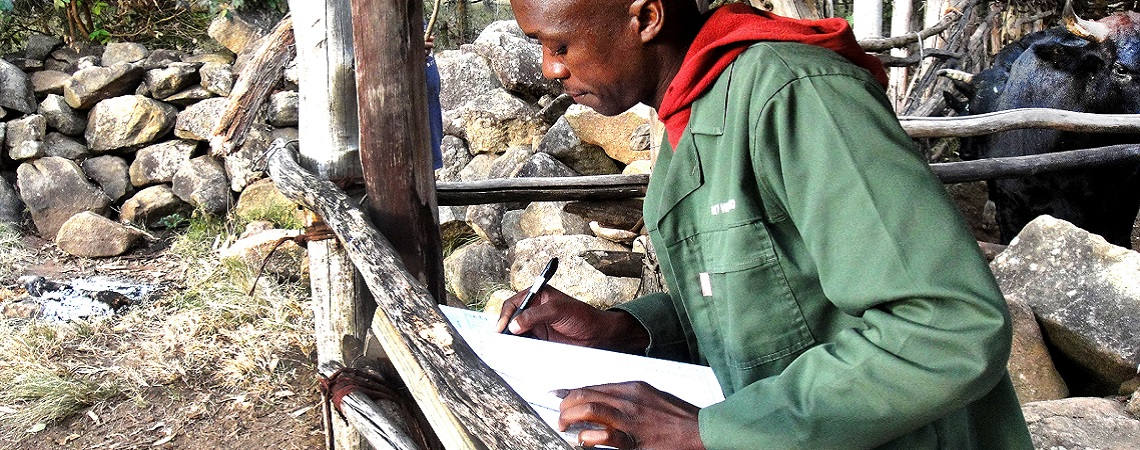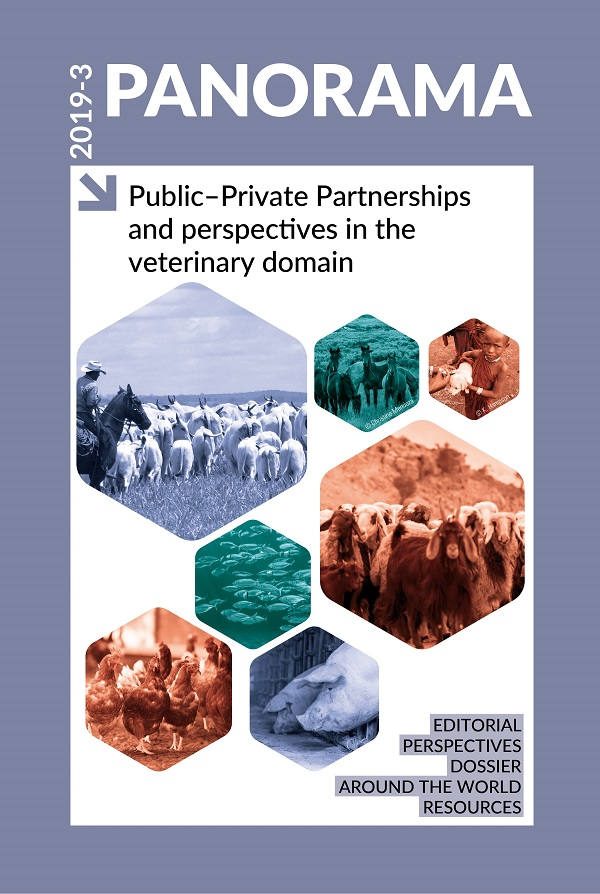Perspectives Posted on 2020-01-02 14:23:57
Public–private partnerships build SPS capacity and develop market access
Keywords
Authors
M. Spreij(1)* & M. Hopper(1)
(1) Standards and Trade Development Facility (STDF) Secretariat.
* Corresponding author: Melvin.Spreij@wto.org
The designations and denominations employed and the presentation of the material in this article do not imply the expression of any opinion whatsoever on the part of the OIE concerning the legal status of any country, territory, city or area or of its authorities, or concerning the delimitation of its frontiers and boundaries.
The views expressed in this article are solely the responsibility of the author(s). The mention of specific companies or products of manufacturers, whether or not these have been patented, does not imply that these have been endorsed or recommended by the OIE in preference to others of a similar nature that are not mentioned.
Improving SPS outcomes
 PPPs strengthen the implementation of SPS measures, improve SPS outcomes, enhance market access and promote competitiveness. Research into PPPs by the STDF and the Inter-American Development Bank (IDB) [2] highlights the private sector’s contribution in stimulating innovation, leveraging knowledge and resources, and addressing gaps in the SPS infrastructure. At the basic level, successful PPPs depend upon commitment and trust; clarity about the partnership’s objectives, responsibilities and financing; good governance and transparency; and high-level leadership.
PPPs strengthen the implementation of SPS measures, improve SPS outcomes, enhance market access and promote competitiveness. Research into PPPs by the STDF and the Inter-American Development Bank (IDB) [2] highlights the private sector’s contribution in stimulating innovation, leveraging knowledge and resources, and addressing gaps in the SPS infrastructure. At the basic level, successful PPPs depend upon commitment and trust; clarity about the partnership’s objectives, responsibilities and financing; good governance and transparency; and high-level leadership.
The STDF’s work on PPPs to build SPS capacity, including the ability to monitor and control animal diseases, was used by the World Organisation for Animal Health (OIE) to develop its global survey on the role of PPPs in strengthening Veterinary Services. The findings of the survey, which was sent to all OIE Members, as well as to several private bodies, will support future perspectives on PPPs in the field of animal health.
Safe trade opportunities
Worldwide, STDF projects are building the private sector’s capacity to implement SPS measures and take advantage of safe trade opportunities. These projects contribute to private-sector development, which plays a key role in commercialising agriculture, generating economic growth, and creating employment and improved living conditions, in support of the Sustainable Development Goals.
In Latin America, under an STDF project led by FEEDLATINA, the public and private sector formalised their cooperation at both the regional and national levels to harmonise regulations and improve animal feed safety. Technical support from the Food and Agriculture Organization of the United Nations (FAO), the Inter-American Institute for Cooperation on Agriculture (IICA) and the OIE to meet SPS requirements has built capacity among regulatory agencies, Veterinary Services, agricultural and food safety services, and the private sector. This, in turn, has improved market access for animal feed in the region.
http://dx.doi.org/10.20506/bull.2019.3.3040
References
- Standards and Trade Development Facility (STDF). – Partnering with the private sector: delivering SPS outcomes.
- Standards and Trade Development Facility (STDF) & the Inter-American Development Bank (IDB) (2012). – Public–Private Partnerships to enhance SPS capacity: what can we learn from this collaborative approach?












